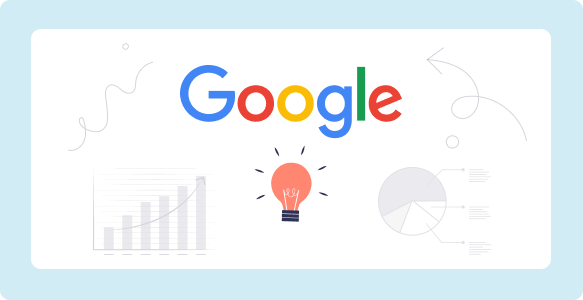
One of the reasons for Google’s popularity over other search engines is its overarching goal of providing excellent user experience through high-quality results for the subject matter a searcher wants to learn or discover more about. Another thing that makes Google popular among SEO professionals is that the company continues to develop the system by rolling out updates to discover and address technical issues or loopholes in the Google algorithm that shady entities can abuse to deceive consumers. They even have a Google search status dashboard where users can check the status of the Google search services for complete transparency.

What Is An Algorithm, anyway?
An Algorithm is a step by step method which is used to help solve a problem in computer operations and data processing. Algorithms are designed to manipulate data in a number of ways to help a person or program come to a solution to anything they may be having issues with. Internet search engines like Google perform a search algorithm update annually to help promote better functions for website users. A proper SEO strategy is based on this algorithm.
What is a Google Algorithm Update?
A Google algorithm update is a system update in which parameters and search algorithm data is modified to help provide better organic search results for a searcher, along with enhancing search rankings of websites. These types of updates made by Google are designed to try and penalise websites which don’t conform to their webmaster guidelines and praise those who do. Google continues to upgrade their search algorithms regularly to help provide a better overall experience for website visitors and website owners.
Find Out Why the World's Leading SEO Experts Are Using Our Platform For Their Campaigns To Deal With Google's Core Updates.
Here are the minor and major algorithm updates that transformed the Google search engine into the powerhouse that it is today; beginning with the latest:
Panda 2.5
-

 September 2011
September 2011 -
 4 min read
4 min read
The Panda update 2.5 came on October 5, 2011, but the specific details were unclear with some websites getting significant gains while others suffered losses in rankings.
Expanded Sitelinks
-

 August 2011
August 2011 -
 4 min read
4 min read
Google introduced expanded sitelinks in August 16, 2011, which helped users navigate through a website on the search results quickly by displaying key sections that you can easily click on. With this, even though people type a general query about a brand, they get quick access to the different parts of that company’s domain.
Paginated Elements
-

 September 2011
September 2011 -
 4 min read
4 min read
In September, Google rolled out pagination elements that allowed websites to divide a long post into different pages while informing Google that said webpages are from a single article.
Read Pagination Elements: Avoiding The Duplicate Content Penalty
Panda 2.0 to 2.1
-

 April and May 2011
April and May 2011 -
 4 min read
4 min read
Panda 2.0 and 2.1 launched in April and May 2011, respectively. These Google algorithm updates integrated new signals into the ranking algorithm including data about websites that users blocked through the results page or when using the Chrome browser.

Get Your Content in 4 Easy Steps
Create a free account to start ordering SEO Content!
1
Create Your Free Account
Create a free account and gain access to our platform.
2
Create a Project
Tell us about your website, so we can tailor your Content to it.
3
Customise Your Content
Answer few essential questions & add your own title, voice & important guidelines.
4
Review & Track
Review your content, ask for eventual corrections & track your order status.
Our Mission: Transforming SEO With Transparency And Trust
Subscribe to Our Blog
Stay up to date with the latest marketing, sales, service tips and news.
"*" indicates required fields

